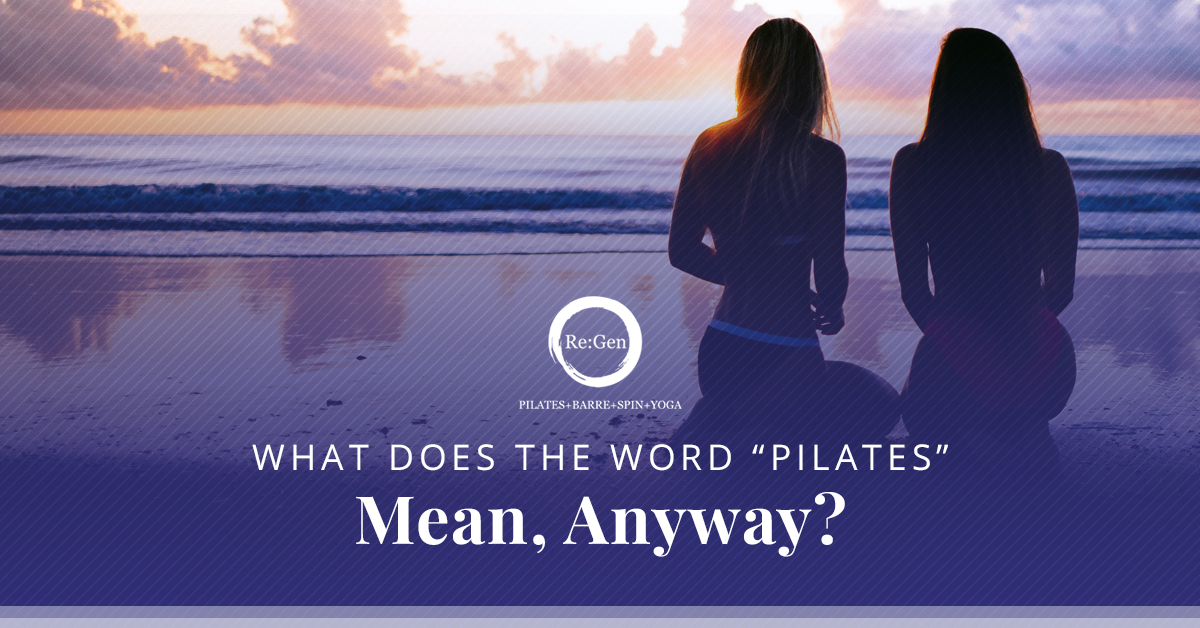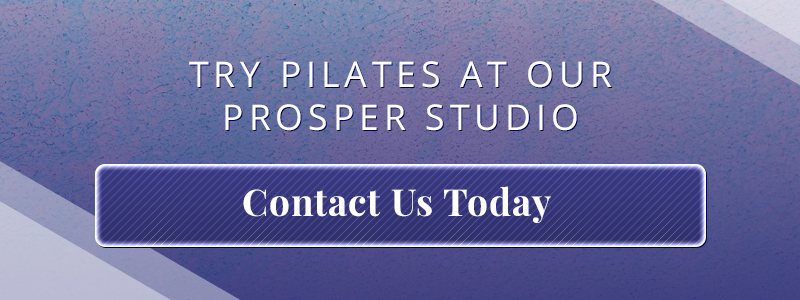At Re:Gen Pilates, we get a whole lot of questions about Pilates. What do you wear to Pilates classes? What are the benefits of Pilates? What are the differences between Pilates, Barre, and Yoga? Questions like those are the most common, but there’s one that we also get semi-frequently, and it’s a surprisingly simple one — what does the word Pilates even mean?
Pilates is a weird word, after all, and it’s not like a lot of other workouts which titles are fairly self-explanatory.
In this blog, we’ll take a look at the word Pilates itself, looking into its meaning, its origin, and how it’s used today. Keep reading if you’ve been asking yourself these questions!
Joseph Pilates – The Man, the Legend
Did you know what Pilates isn’t actually a normal word at all? It’s actually a name! We’re sorry if you weren’t ready for that massive bombshell, but it’s the truth, and as it turns out, Joseph Pilates has a pretty interesting story. The Pilates workout regimen is, of course, named after him, and to understand Pilates itself, it helps to know the context of where it began in Joseph’s life.
When people think of Pilates, the first mental image that comes to mind is usually a bright and vibrant fitness studio, filled with women on fitness mats. This isn’t far from the truth — Pilates tends to attract more women than men, and we’d be lying if we said our studio wasn’t a classy place to work out. But did you know that Pilates originated in completely opposite circumstances? Instead of being practiced by women in lovely gyms, the first form of Pilates was practiced by grizzled military men in a World War 1 intern camp.
Indeed, Pilates had extensive exercise with various forms of physical training methods, and he experimented greatly with different styles of aerobic exercises and movements. When he found himself in the Knockaloe intern camp in World War 1, he resolved with his fellow soldiers that they would leave stronger than when they had arrived, and Joseph was good on his word. Pilates was born, and he had unwittingly created something that would become a worldwide phenomenon into the next century and beyond.
Joseph realized he had something special, and when the grueling war ended, he started to hone his craft. He took on several students who would go on to become teachers themselves. He also wrote two books, and spent the rest of his life developing his fitness method.
Joseph was so committed to his craft that his surname ended up becoming the official title of the new workout method. Eventually, millions of people would come to learn that Pilates was an effective workout that could give you incredible core strength, increased flexibility, and astounding body control.
While many people still do not know that Pilates was actually a man’s name, his legacy is not forgotten, and we love telling his story to students of our gym who are curious to learn more.
How do You Pronounce Pilates?
While most adults have gone long enough in their lives to hear someone else correctly pronounce Pilates, there are still people who have never actually heard the word in casual conversation. If you fit that description, we wouldn’t blame you if you had the wrong ideas about its pronunciation.
Pie-lates? Pill-ates? The word Pilates definitely isn’t an orthodox one, being Germanic in origin. Matters are only made more confusing if you’re a Bible aficionado who has spent a lifetime referencing Pontius Pilate in your Sunday meetings.
Well, enough beating around the bush. Here’s how to pronounce Pilates:
Pɪˈlɑtiz [pi-lah-teez]
Congratulations, you’re now a verifiable expert on how to pronounce the word Pilates. Ready to put your newfound knowledge to use? Head to your nearest Pilates gym and impress your friends by not calling it “Pilots.”
Pilates as a Word
In October 2000, the word “Pilates” was ruled as a generic term by U.S. courts, which officially made it into its own word. According to the dictionary.com definition, Pilates is “a system of physical conditioning involving low-impact exercises and stretches designed to strengthen muscles of the torso and often performed with specialized equipment.”
In today’s lexicon, Pilates is just as common a word as yoga, and is cited by many as a go-to fitness method that solves a lot of common problems, such as lack of flexibility and core strength.
Because Pilates is such a weird word relative to other words in the English language, it has a lot of common misspellings, whether it’s people who don’t know how to spell it, or those who type it out according to its pronunciation. In our analytics, we’ve seen words such as “pillates,” “palaties,” and “polaties” being searched. We hope that, after such a comprehensive lesson on the word itself, that you’ll have no problem searching “Pilates near me” when you’re looking for a new Pilates gym to hit up in the Prosper, Texas area.
Pilates, Barre, Yoga, and Spin Classes in Prosper, Texas
We hope you’ve enjoyed learning a little bit about the term Pilates, as well as its history and namesake. Pilates is something that has blessed the lives of all the instructors here at Re:Gen Pilates, and countless students of ours have enjoyed the benefits that it brings to the body. Are you ready to start a life-changing fitness program that will make your body capable of doing things you never knew were possible? Contact us today!


leave a comment